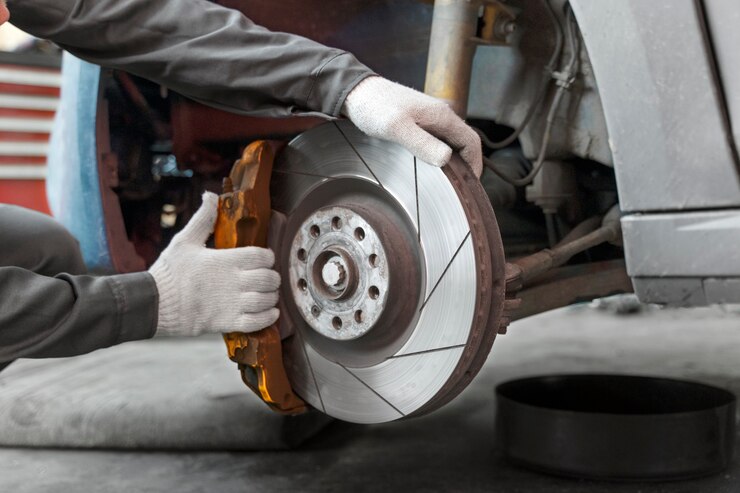Complete Car Brake Maintenance and Repair Services
Your car’s brakes are arguably its most critical safety feature, allowing you to stop quickly and safely when necessary. However, like all components, brakes require regular maintenance and occasional repairs to ensure optimal performance. In this comprehensive guide, we’ll delve into everything you need to know about car brakes, from understanding how they work to diagnosing common issues and performing maintenance and repairs.
Understanding How Brakes Work: Before diving into brake maintenance and repair, it’s essential to have a basic understanding of how brakes work. Most cars have a hydraulic braking system that uses brake fluid to transmit force from the brake pedal to the brake calipers, which then squeeze the brake pads against the brake rotors to slow or stop the car. Disc brakes are the most common type of brakes found on modern vehicles, although some older cars may still have drum brakes on the rear wheels.
Signs of Brake Problems: Knowing the signs of brake problems can help you address issues before they escalate into more significant and costly repairs. Here are some common signs that your car’s brakes may need attention:
- Squealing or grinding noises when braking
- Vibrations or pulsations in the brake pedal
- Soft or spongy brake pedal
- Longer stopping distances
- Pulling to one side when braking
If you notice any of these symptoms, it’s essential to have your brakes inspected by a qualified mechanic as soon as possible to prevent further damage and ensure your safety on the road.
Brake Maintenance Tips: Regular maintenance is key to keeping your car’s brakes in top condition and prolonging their lifespan. Here are some essential brake maintenance tips to keep in mind:
- Inspect the brake pads and rotors regularly for wear and replace them as needed.
- Check the brake fluid level and condition regularly and top it up or replace it if necessary.
- Have the brake system inspected and serviced by a qualified mechanic at least once a year or as recommended by the manufacturer.
- Follow proper braking techniques, such as avoiding hard stops and allowing the brakes to cool down between heavy use.
Common Brake Repairs: Despite proper maintenance, brakes can still develop issues over time that require repair or replacement. Here are some common brake repairs you may encounter:
- Brake pad replacement: Over time, brake pads wear down and need to be replaced to maintain proper braking performance. Signs that your brake pads may need replacing include squealing or grinding noises when braking and reduced braking effectiveness.
- Rotor resurfacing or replacement: Brake rotors can become warped or worn over time due to heat and friction. In some cases, they can be resurfaced to restore their smooth surface, but if they’re too thin or damaged, they may need to be replaced.
- Brake fluid flush: Brake fluid can become contaminated or degrade over time, affecting braking performance. Flushing the brake fluid periodically can help remove any contaminants and ensure proper brake operation.
Proper maintenance and regular inspections are crucial for keeping your car’s brakes in top condition and ensuring your safety on the road. By understanding how brakes work, recognizing the signs of brake problems, and following the maintenance tips outlined in this guide, you can prolong the life of your brakes and enjoy peace of mind knowing that your car will stop safely when you need it to. If you’re ever unsure about performing brake maintenance or repairs yourself, don’t hesitate to seek professional help from a qualified mechanic.


